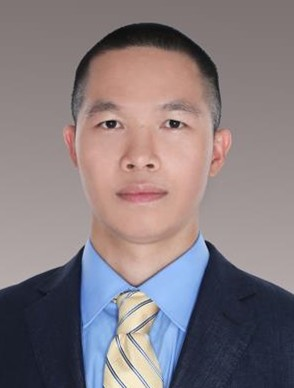search


FACULTY

Lin, Yuan
Positional Title: Associated Professor
Email: yuanlin@scut.edu.cn
Working For: Shien-Ming Wu School of Intelligent Engineering
Graduated School: Virginia Tech,Engineering Mechanics, Ph.D.
Final Degree: Ph.D.
Office: D1-a506
Zip Code: 510640
Telephone: 020-81182128
Mentor Type: Ph.D. Advisor
Personal profile
Yuan Lin received his Ph.D. degree in Engineering Mechanics from Virginia Tech and was a postdoctoral fellow at Virginia Tech and the University of Waterloo. Dr. Lin joined South China University of Technology in 2021 as a tenure-track assistant professor and established Intelligent Vehicles Lab. Dr. Lin’s research interests include Energy management; Autonomous driving; Reinforcement learning. The link to Dr. Lin’s Intelligent Vehicles Lab website is as follows.
Work Experience
2021 to present, South China University of Technology, Associate Professor
2018-2020, University of Waterloo, Postdoc
2016-2018, Virginia Tech, Postdoc
Education
2011-2016, Virginia Tech, Engineering Mechanics, Ph.D.
2007-2011, Nanchang University, Civil Engineering, B.E.
Research Interest
Energy management; Autonomous driving; Reinforcement learning.
Selected Publications
2022
[1]Yuan Lin, John McPhee, Nasser L. Azad, 2022: “Co-optimization of on-ramp merging and plug-in hybrid electric vehicle power split using deep reinforcement learning,”IEEE Transactions on Vehicular Technology. Accepted.
2021
[3]Yuan Lin, John McPhee, Nasser L. Azad, 2021: “Comparison of deep reinforcement learning and model predictive control for adaptive cruise control,” IEEE Transactions on Intelligent Vehicles, 6(2), 221-231.
2020
[2]Yuan Lin, John McPhee, Nasser L. Azad, 2020: “Anti-jerk on-ramp merging using deep reinforcement learning,” 2020 IEEE Intelligent Vehicles Symposium, 7-14.
[4]Yuan Lin, Azim Eskandarian, 2020: “Integrating inter-vehicular communications, vehicle localization, and a digital map for cooperative adaptive cruise control with target detection loss,” SAE International Journal of Connected and Automated Vehicles, 3(3), 193-204.
2019
[5].Chaoxian Wu, Yuan Lin, Azim Eskandarian, 2019: “Cooperative Adaptive Cruise Control with adaptive Kalman filter subject to temporary communication loss,” IEEE Access, 7, 93558-93568.



